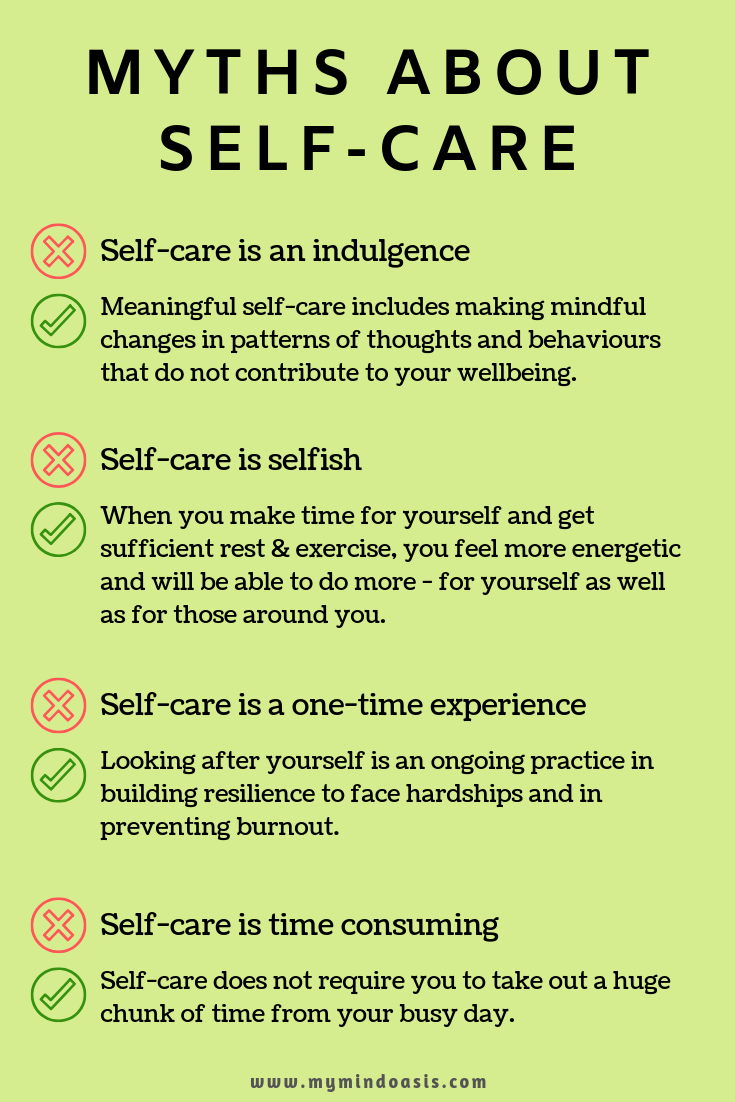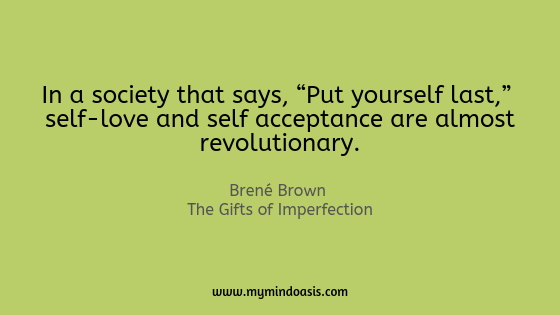What is self-care and how to make it a part of your life
In this article, I will introduce you to what self-care is, what it isn’t and why it is important to make self-care a part of your life. I invite you to look beyond the conventional ways of describing self-care and explore more meaningful, sustainable practices.
Self-care is the deliberate choice you make to maintain your own health and wellness. This includes regularly checking in with your mind and body, identifying any unmet needs and nurturing your physical, mental, emotional, relational and spiritual wellbeing on an ongoing basis.
Let us start by clearing up some commonly held myths and misconceptions about self-care.
Self-care is NOT an indulgence
While there’s absolutely nothing wrong with indulging or pampering yourself once in a while, there is more to self-care than bubble baths and face-masks. It is easy to trivialise and write-off self-care by focusing only on the indulgence. Meaningful self-care involves not just the easy, fun things. More importantly, it includes making mindful changes in patterns of thoughts and behaviours that do not contribute to your wellbeing. For instance, saying no without feeling guilty, knowing when to take a break or avoiding harmful coping mechanisms.
Self-care is NOT selfish
Brené Brown, in her book The Gifts of Imperfection writes: “In a society that says, “Put yourself last,” self-love and self acceptance are almost revolutionary.” Self-care is not a disregard for others’ needs. It is extending the same concern and empathy for your needs that you offer others. Practicing self-care by enforcing healthy boundaries and communicating your needs is not only essential for yourself, but also makes you more available for those around you. When you make time for yourself and get sufficient rest & exercise, you feel more energetic and will be able to do more - for yourself as well as for those around you.
Self-care is NOT a one-time experience
Going on a spa day and treating yourself poorly for the rest of the week is not self care! Looking after your most basic physical and emotional needs is not a one-time luxury. It is an ongoing practice in building resilience to face hardships and in preventing burnout. To put it simply, self-care is not optional! To make the most out of self-care, it is essential to have a regular practice that is a part of your life and not something you try only when you are about to have a breakdown.
Self-care is NOT time consuming
So many people around me – including friends, family and clients, insist: “I just don’t have the time for it!” Despite acknowledging the benefits and necessity of self-care, some people refrain from making it a practice. Given how busy everyone is these days, it is understandable that you hesitate to commit your time. However, I want you to know that self-care does not require you to take out a huge chunk of time from your busy day. Self-care is practicing loving kindness towards yourself, every day, all the time.
What does it mean to have a regular self-care practice?
Having a self-care practice means that you choose to explore your needs through regular reflection and make appropriate changes to meet these needs. Becoming aware of your needs (which include multiple facets such as mind, body, relationships) is the first step in learning to make self-care a priority. Simple practices such as journaling, meditation, mindfulness and a number of other creative ways can help you begin this reflection. Setting aside a few minutes everyday – perhaps just before going to bed or having a meal – goes a long way in staying committed to the practice and making it an integral part of your life.
In addition to the time you set aside for reflection, prioritising self-care includes:
Accepting that it’s OK to have needs
Allowing yourself to be tired
Allowing yourself to make mistakes
Looking after your body by nourishing it and including some form of physical movement in your routine
Giving yourself the room to practice healthy boundaries
Expressing yourself clearly and without guilt
Staying connected with people, places and activities that make you feel good
Making room for regular self-care in your life has a number of benefits. It helps to build resilience, prevents burnout, promotes healthier relationships and makes you more productive.
How to create a sustainable self-care plan?
Self-care is essential for a wholesome, balanced life. Since self-care is an ongoing practice, you need to work on a plan that is sustainable in the long run.
Start small
You don’t have to make sweeping or overwhelming changes to start practicing self-care. Start with small changes and additions to your routine. If setting aside 30 minutes every day seems impossible right now, try beginning with 10 minutes for the first week and gradually increase. Remember, self-care is less about what you do and more about how you treat yourself.
Experiment
Each person is different and has unique needs, so there is no one-size-fits-all plan that will work for everyone. To figure out which practices work best for you, try a variety of things. When you experiment, you will gain clarity about what fits your life and routine. Make a list of activities you find helpful.
Intentional practice
If you want to build a sustainable self-care plan, it is important to be actively engaged in the practices you try. Pay attention to how it makes you feel. What is the outcome? What do you like/dislike about it?
Here are some suggestions to get you started with a self-care plan:
Pause and check-in with yourself before getting out of bed
Practice slow, deep breathing
Start writing a journal
Create something (draw, paint, cook, sculpt, collage)
Stretch when you take a break
Put your phone/tablet away for an hour
Take a walk
Call a friend
Drink lots of water
Get enough sleep
Practice saying no
Reconnect with a hobby
Spend time outdoors
Follow a guided meditation
Join a support group
Make a gratitude list
Look for opportunities to laugh
Read a book
Visit your doctor for a check-up
Plan going out with friends/family
Get in touch to know more about upcoming self-care groups and workshops.




